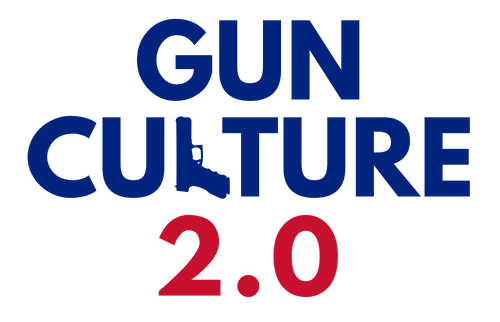A colleague of mine, David Zehrung, is a psychologist practicing in Pennsylvania. He will be speaking this month to the Pennsylvania Psychological Association about firearms. He asked me to provide a 3-minute overview of what I’d like psychologists to know about gun owners. I put together a 5-minute version for “Light Over Heat” this week.
Some additional materials on this topic:
Walk the Talk America is doing great work at the intersection of guns and mental health.
My essay “What We Talk About When We Talk About ‘Gun Safety’” for The BulletPoints Project.
My take on Guns are Normal and Normal People Use Guns.
A longer presentation on the changing face of gun owners I gave to the Outdoor Writers Association of America.

Great points and it is good to hear that he will be talking about this, as it is something psychologists need to know. Gun ownership is not pathological.
I am not aware of any data on the prevalence of gun ownership among psychologists, but my anecdotal data, as a psychologist in academia, would suggest it is fairly rare. Of course, this is in academia, which is an issue in and of itself when it comes to guns. As a veteran, to my knowledge I am the only psychologist in my department who owns firearms. Some of my colleagues have come to me to talk about them and to discuss getting trained. I also discuss it with my graduate students, who are clinicians in training and many of whom work with veterans, and recognize their lack of knowledge. Nothing will turn a veteran or any gun owning client off more quickly than spouting inaccurate details (e.g., automatic v. semi, or magazine v. clip, etc).
It is always interesting to me that a field that considers itself a science is dominated by unscientific thinking on the issue. Also that, when it comes to treatment, a field that is focused being non-judgemental is inclined to judge on this issue.
LikeLiked by 1 person
Your presentation is very reasonable and I wonder how it will be received?
LikeLike
In addition to being a firearms instructor I have a master’s degree in clinical psychology. In the course of earning the latter, I interned four years at a Suicide Prevention Center. If I was still in that line of work, this is what I’d want psychotherapists to know and tell their patients:
If I was going to attempt suicide, I would not use a gun. Guns don’t always work and, when they fail, they leave a mess. We humans are tough. We can survive with large chunks of our anatomy, including pieces of our brain, destroyed. I and anyone who’s worked in a hospital Emergency Department could tell you gruesome stories of people who attempted to shoot themselves in the head or heart and survived, but with permanent, horrific injuries.
There are better solutions, “not killing yourself” being the top of the list. I worked four years helping people find reasons to choose that alternative. It’s part of a psychotherapist’s job.
LikeLike
Those NFS ownership numbers are a bit lower than other estimates often cited.
LikeLike
Agree that surveys underestimate gun ownership. I just couldn’t go into all of those caveats in the video. But see https://guncurious.wordpress.com/2019/02/11/why-surveys-underestimate-gun-ownership-rates-in-the-u-s/
LikeLiked by 1 person
[…] What I Would Like Clinical Psychologists to Know About Gun Owners (Light Over Heat #53) […]
LikeLike
[…] What I Would Like Clinical Psychologists to Know About Gun Owners (Light Over Heat #53) […]
LikeLike
[…] What I Would Like Clinical Psychologists to Know About Gun Owners (Light Over Heat #53) […]
LikeLike